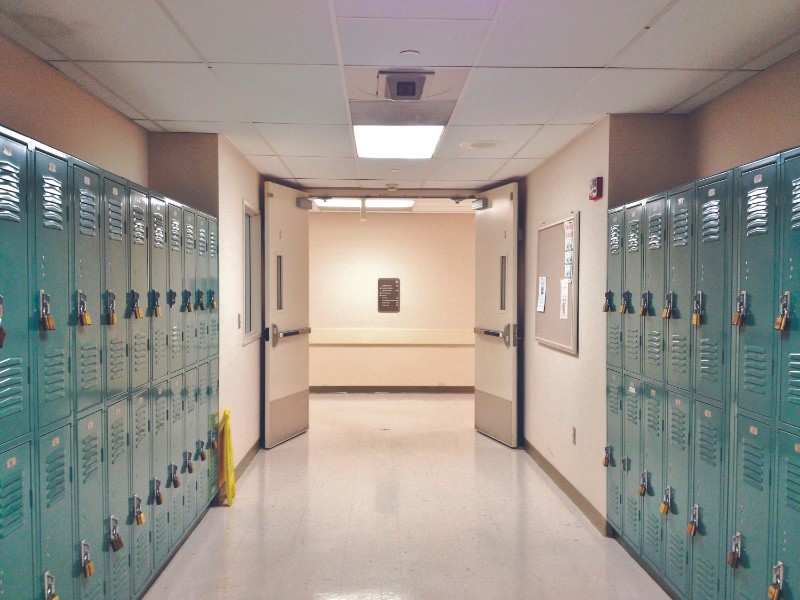I lay awake last Thursday evening, feeling anxious and uncertain, in a word: terrified. Earlier that evening I was supposed to be at the Toronto Maple Leafs game with my daughter, her first time. Then the season was postponed and instead, I was sifting feverishly through my texts, awaiting word from my employer, TanenbaumCHAT – where I teach classes in Tanach and philosophy, and my children’s school – about what the next few weeks were going to look like.
I love teaching. It is truly a rewarding profession. One of the reasons I enjoy it is the nature of the classroom experience. No matter what noise is going on outside the classroom, no matter the news, the sports scores, the errands waiting to be run, when I close that door and see 25 bright, eager, young faces, there is a palpable energy.
It is an opportunity to tune out the noise – put the phones away, no more Snapchat or Instagram for the next hour – and just focus on a single, solitary goal. It may be comprehending a specific sentence in the Tanach, or examining conflicting approaches in the commentaries. It may be grappling with the nuances of Immanuel Kant or Jean-Paul Sartre or Jeremy Bentham, or discussing Iyov’s approach to theodicy and seeing how it compares to Peter Weir’s film The Truman Show. Or maybe comparing the Beastie Boys’ song “Shadrach” to the Book of Daniel. The classroom engages the mind. It is a sanctuary for the cerebral and thought-provoking that allows us to mute distractions and exercise our minds.
I went to school Friday morning to pick up books and pack up anything I might need. The school was going to remain accessible to staff, but we didn’t know for how long. I saw scattered students at their lockers packing up, too. One intrepid student was filling a small bottle with hand sanitizer at one of the school’s wall-mounted stations. Clever.
Education is a privilege. As I packed my bag with binders and notes, I recalled my travels with students to remote parts of Ecuador and Kenya. We met with local students who walk miles each day just for the thrill of accessing education. Back home, when my students ask to be let out of class early, I remind them that every moment we have together is a precious gift we should not squander. Not to mention the financial sacrifice and investment made by their parents. They roll their eyes.
I love what I do, and I will miss it. Despite the digital tools we have at our disposal, nothing can replace the classroom experience: the focus, the energy and the unpredictability. But the comfortable confines of the physical classroom are no longer viable.
Are we ready to jump headfirst into the digital age with intuitive media that can recreate a collaborative environment with the click of a button?
I’ve been teaching for 15 years – this should be easy. So why am I so nervous? Over Shabbat, I had time to think it through, leading to a whole list of new concerns: what if the technology fails? What if my tech-savvy students roll their eyes at my ineptitude? What if I talk too loudly or too softly? Or make funny faces into the camera? Will my energy translate through a screen? Will the students be engaged? Will they be chatting privately while they stare at their screen counting down the minutes? I haven’t felt nerves like this going into a classroom in a long time.
The first class was more successful than I thought. Notwithstanding students who had connectivity issues, in general, participation was good. But after a few more classes, I’m feeling stiff. When I teach in a class, I have space, and I can be dynamic in that space. I can move. Being attached to the screen has forced me thus far to be relatively immobile. I can feel the shpilkes setting in.
And yet, it is striking to see how some students who are reluctant to participate in a traditional classroom setting are much more willing to participate online. Meanwhile, the same urges that exist in a traditional classroom, operate online – the urge to socialize, and to be social. Every student expressed regret at not being able to get together – in person – with friends. There are reports from other teachers of students “crashing” lessons and disrupting. Was Kohelet right? “Ein chadash tachat hashemesh. There is nothing new under the sun.”
Online, students can augment their background, or rotate their screens. I wonder whether I should disable the video feature, or whether that would defeat the point of doing an online lesson. Do I support my students’ creativity and their comfort level with the software? Or lament that their immaturity is showing even here? What’s to stop them from simply muting my lesson and talking to each other while I am oblivious?
Will I be able to reach my students teaching remotely? There are still more questions than answers.
